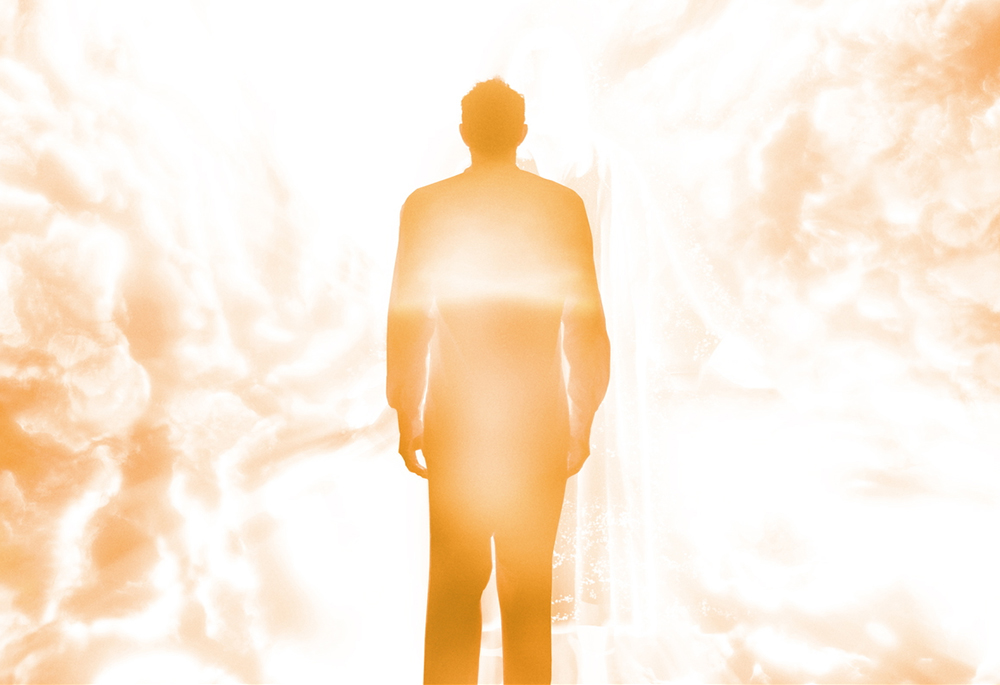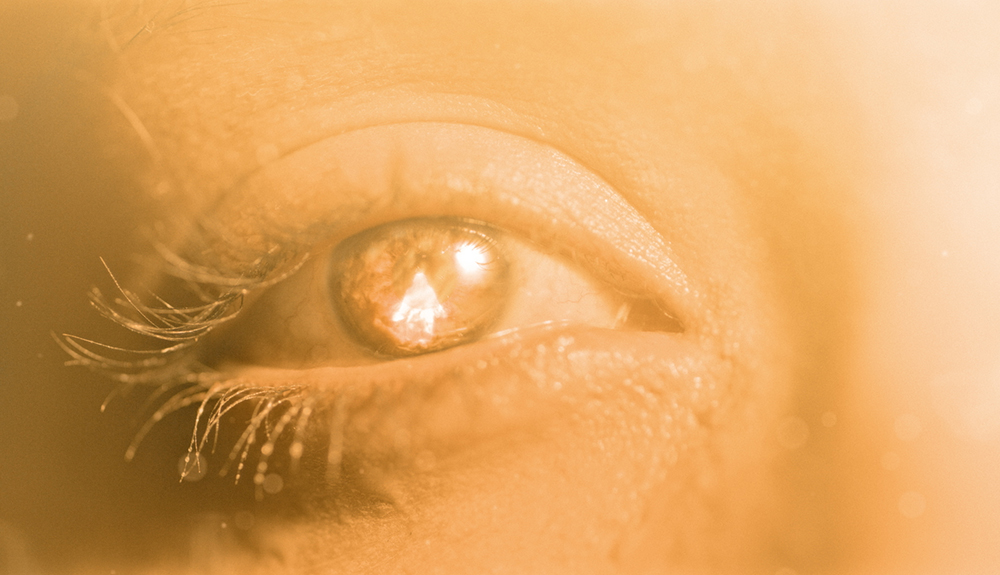
Still from the film "After Death" (Courtesy of Angel Studios)
Editor's note: This review contains spoilers.
If you're looking for a new film to add to your yearly Easter watchlist, Angel Studios has just the one for you. Their docudrama "After Death" features the gripping accounts of real people who survived near-death experiences, and lived to tell the tale.
In these accounts we find an Easter basket full of tropes surrounding death, resurrection, endurance of faith and the eschatological reality of our Christian lives and identity. Among the survivors interviewed in the film are John Burke, the New York Times bestselling author of Imagine Heaven; Dr. Mary Neal, an orthopedic surgeon and the author of To Heaven and Back; Dale Black, a former airline pilot and the author of Flight to Heaven and Visiting Heaven; and Don Piper, an ordained minister and New York Times bestselling author of 90 Minutes in Heaven.
The film begins by defining a near-death experience: "The events that take place as a person is on the brink of death (or is already clinically dead) and recounted after recovery." Many of the stories recounted experiences that only began after the patient was medically declared dead.
Upon the moment of impact between the aircraft and mausoleum, now-retired airline pilot Dale Black recalls suddenly finding himself positioned above the crash site, unaware of what he was looking at or why. Without experiencing any pain, fear or discomfort, Black hovered above the site only to realize that he was looking at himself, dead and lost under the rubble of the commuter airplane that he and his co-pilots had been flying just moments ago. Choked up and teary eyed, Black says, "I can remember today as well as I could five years ago, 10 years ago, you … realize that … you are not a body … I believe it's what happens to everyone when they die."
Orthopedic spine surgeon Dr. Mary Neal also experienced an out-of-body moment, but she describes hers as an explicitly religious one. Neal and her husband were kayaking down a river one day when the high currents forced Neal down the main stem of the river's waterfall, pinning Neal's kayak and trapping her under 8 to 10 feet of water. In her last few minutes of consciousness, Neal remembers thinking to herself that she was going to drown. Then, with teary eyes and a large grin, Neal says:
I would think about the fact that … I must be dead … but … I didn't feel dead! I felt more alive than I ever felt. I felt this incredible experience like I was just part of the water. … I felt magnificent, actually. I knew that I was being held by Christ as purely as I know anything. I know it sounds crazy, but … it's just something that is, uh … outside of our language.
Many of the survivors interviewed, including Black and Neal, report a consistent sequence of events to take place post-collision or illness. First, there is an out-of-body experience of finding themselves outside of space and time, but somehow still amid earthly events. After regaining their consciousness in this disparate realm, there is an encounter with the Divine, often described as being met with a heavenly light or even being greeted by Christ, deceased loved ones or indiscernible beings that serve as loving guides, answering the individual's questions and disclosing to them unspeakable truths.

A still from the movie "After Death" (Courtesy of Angel Studios)
No two near-death experiences are the same, and inconsistencies do exist; some survivors even report having an experience of hell and torment. But what is consistent is the substantial effect it has on the individual once they awaken earthside. Just about every survivor interviewed in the film reports having a radical conversion of faith after being "changed forever" by their near-death experience. While their newfound spiritual knowledge does not protect them from future grief or pain, many went on to write books or start ministries to share the hope they found after death.
These survivors — some atheist or non-Christian, some with addictions, some wildly successful professionally, some who would not have chosen to live again — all describe their experience as ingrained into the fabric of their soul. Even decades after the fact, their near-death experience remains the source of their mission on earth.
Advertisement
"It's all love," said former Northern Kentucky University art professor and department chair Howard Storm. "I knew that what had happened to me was the most important thing in my life, because now my life had real meaning and purpose … it's an ocean of love and you have to just go into that ocean of love and be a part of it."
The Resurrection we honor on Easter Sunday and ontologically embody as baptized Christians throughout the Easter season (and well beyond it!) is due to the death that Christ died for us and the death we have died in response — whether liturgically throughout the Lenten season, or personally throughout our ongoing daily sufferings.
'I knew that what had happened to me was the most important thing in my life, because now my life had real meaning and purpose.'
—Howard Storm
However, like the near-death experience survivors featured in "After Death," the special joy of the Resurrection we find in the Easter season is not meant to devalue or distract us from our earthly lives. Rather, it is meant to remind us of the fullness of that joy that awaits and move us to share that joy with others through our work and talents, through an enlivening of our faith and through love rather than fear.
While there are many conversations to be sparked by watching "After Death," it is the hope and conviction — the reminder of what this is all for — of the near-death experience survivors that make it worth watching. If you find yourself in need of some extra radical perspective this Easter, this might be the film for you.








